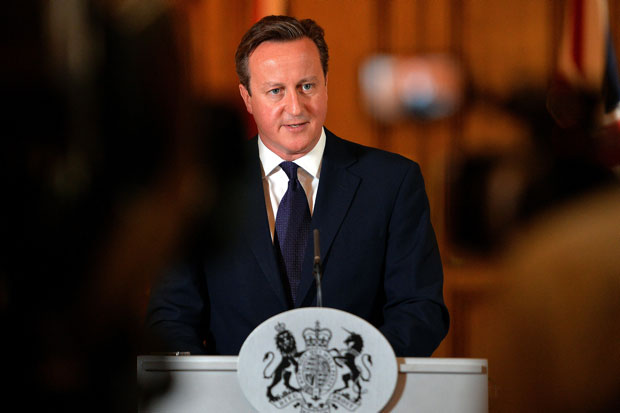The words are strong, the sentiment behind them no doubt heartfelt. ‘We will do everything in our power to hunt down these murderers and ensure they face justice, however long it takes,’ said David Cameron, speaking as Britain recoiled in horror at yet another jihadist beheading video, this time of a British man, David Haines. Sadly, Cameron’s promises are empty. Ask a Whitehall official how many suspected murderers of British hostages have been brought to justice and there is a long silence. ‘Let me get back to you on that,’ said one this week. There is a depressing pattern. In 2004, Ken Bigley, from Liverpool, was beheaded in Iraq by the group led by a Jordanian militant called Abu Musab Al-Zarqawi. Tony Blair expressed his outrage and vowed to bring those responsible to justice. Two years later, we still hadn’t got him. Al-Zarqawi was then killed by a bomb dropped on his hideout — but by the US airforce after being tracked down to his lair, not by British detectives but by Jordanian intelligence agents. There were sound tactical reasons why no one could go and arrest Al-Zarqawi, but his death was closer to retribution than justice. In January 2009, a Briton, Edwin Dyer, was among several western tourists abducted near Timbuktu in Mali; they had come to watch the Tuareg Sahara festival. Whoever grabbed them at gunpoint, they ended up in the hands of al-Qa’eda’s local franchise, AQIM, short for al-Qa’eda in the Land of the Islamic Maghreb. AQIM were after money, guns and leverage to get their friends out of jail. So they issued their demands and the Swiss, the German and the Canadian hostages got released, reportedly for ransoms and prisoner swaps. But Britain has a long-established policy of ‘not making substantive concessions to kidnappers’, on the sensible grounds that this enriches the abductors and encourages them to take more hostages. In June 2009, AQIM murdered Mr Dyer and posted a video online. Gordon Brown called the killing ‘barbaric’ and told the Commons that those responsible would be ‘hunted down and brought to justice’. They never have been. Last year, at a gas plant in Algeria, a multi-national group of jihadists from the ridiculously named ‘Signed in Blood Battalion’ held dozens of engineers and staff hostage for four days, rigging them up to explosives before the Algerian military ended the siege in a blaze of gunfire. Six Britons were among 40 foreigners killed. The papers duly announced ‘PM vows to hunt down terrorists behind Algeria hostage attack’. An inquest finally opened this month and a number of minor suspects are in custody in Algeria, but the hunt for the ringleader, Mokhtar Belmokhtar, has gone cold. He is reported to be recruiting jihadist fighters returning from Syria. The task of following up these cases usually falls to the detectives of SO15, the Metropolitan Police’s Counter Terrorism Command, with help from intelligence agencies. But they can only work with the information they are given and do not have a mandate to fly around interviewing suspects. In the murky world of tracking terrorists, intelligence is hard to come by. Even the Americans, with all the terabytes of the NSA’s eavesdropping capabilities at their disposal, do not always pounce in the right place at the right time. Without a well-placed informant inside the hostage-taking cell it is extremely hard to track people who have multiple aliases, rarely show their faces in public and are able to move vast distances over remote areas in nondescript vehicles. Even if the intelligence agencies can locate a suspected kidnapper and murderer, how do they arrest him? The Americans have had some success seizing suspects, sometimes controversially, in Pakistan and Libya, but most are unlikely to give up without a fight. Often issues of sovereignty make it impossible or impractical for British investigators to get close to the people they are seeking to bring to justice. Algeria, which fought a long and bitter war of independence, understandably guards its sovereignty closely. These hostage horrors are not going to go away. So next time some hapless Briton is murdered and our leaders vow to bring those responsible to justice, they might want to bear in mind what’s pinned to the wall of an upstairs office in New Scotland Yard: the clues and leads as to who might have killed Edwin Dyer in the Sahara five years ago. The pieces of paper have long since faded and curled, the thin lines of red tape lead nowhere.
Frank Gardner is the BBC’s security correspondent.






Comments